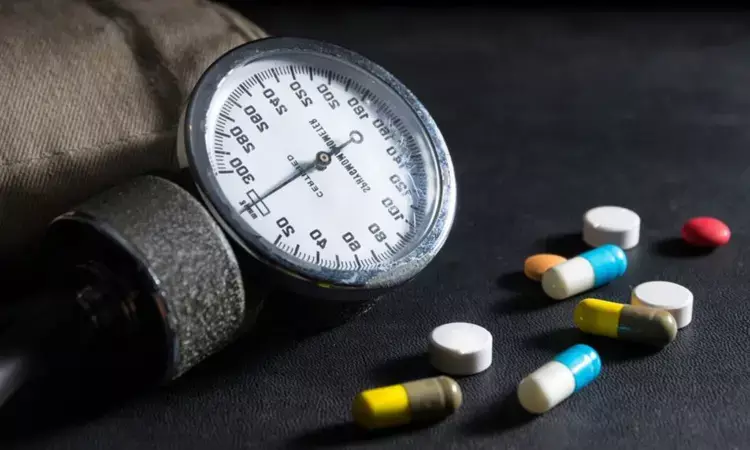- Home
- Medical news & Guidelines
- Anesthesiology
- Cardiology and CTVS
- Critical Care
- Dentistry
- Dermatology
- Diabetes and Endocrinology
- ENT
- Gastroenterology
- Medicine
- Nephrology
- Neurology
- Obstretics-Gynaecology
- Oncology
- Ophthalmology
- Orthopaedics
- Pediatrics-Neonatology
- Psychiatry
- Pulmonology
- Radiology
- Surgery
- Urology
- Laboratory Medicine
- Diet
- Nursing
- Paramedical
- Physiotherapy
- Health news
- Fact Check
- Bone Health Fact Check
- Brain Health Fact Check
- Cancer Related Fact Check
- Child Care Fact Check
- Dental and oral health fact check
- Diabetes and metabolic health fact check
- Diet and Nutrition Fact Check
- Eye and ENT Care Fact Check
- Fitness fact check
- Gut health fact check
- Heart health fact check
- Kidney health fact check
- Medical education fact check
- Men's health fact check
- Respiratory fact check
- Skin and hair care fact check
- Vaccine and Immunization fact check
- Women's health fact check
- AYUSH
- State News
- Andaman and Nicobar Islands
- Andhra Pradesh
- Arunachal Pradesh
- Assam
- Bihar
- Chandigarh
- Chattisgarh
- Dadra and Nagar Haveli
- Daman and Diu
- Delhi
- Goa
- Gujarat
- Haryana
- Himachal Pradesh
- Jammu & Kashmir
- Jharkhand
- Karnataka
- Kerala
- Ladakh
- Lakshadweep
- Madhya Pradesh
- Maharashtra
- Manipur
- Meghalaya
- Mizoram
- Nagaland
- Odisha
- Puducherry
- Punjab
- Rajasthan
- Sikkim
- Tamil Nadu
- Telangana
- Tripura
- Uttar Pradesh
- Uttrakhand
- West Bengal
- Medical Education
- Industry
Valsartan's single-pill combination therapy significantly reduces BP in hypertensive patients

Malaysia: Valsartan (Val)-based single-pill combination (SPC) therapies significantly reduced blood pressure (BP) in hypertensive patients, with 57% of patients achieving target BP over a prolonged follow-up period of 1 year, a recent study has shown. The findings were published online in the Malaysian Journal of Medical Sciences (MJMS).
Uncontrolled hypertension can contribute to cardiovascular disease (CVD) leading to heart failure (HF), stroke, coronary artery disease and kidney disease and is an important health issue. Prescribing a single-pill combination therapy provides the benefit of having an additive BP-lowering effect and reduced adverse effects, as individual drugs in the SPEC therapy are within the tolerable dose range. BP control is achieved quickly and this regimen may help lower the pill burden as medications are indicated for chronic use. The usual combinations of two or three antihypertensive medications include renin-angiotensin-aldosterone system (RAAS) blocker with calcium channel blocker (CCB) and RAAS blocker plus CCB coupled with diuretic, respectively.
To summarize, SPC therapies possess a combined BP-lowering effect and may improve compliance with treatment. Ahmad K. M. Yusof, Cardiology Department, Institut Jantung Negara, Kuala Lumpur, Malaysia, and colleagues aimed to provide real-world evidence on the effectiveness of amlodipine/valsartan (Aml/Val) and amlodipine/ valsartan/hydrochlorothiazide (Aml/Val/HCTZ) SPC therapies for achieving blood pressure control in VaREAL study in hypertension patients from 2013 to 2017.
In the retrospective study, the researchers extracted data from the hybrid medical records of patients from the Institut Jantung Negara (IJN), Malaysia. It included adults with established diagnoses of hypertension and on the prescription of valsartan's single-pill combination therapies as part of routine medical care, with ≥ 1 year of follow-up.
The primary endpoint of the study was determined as the proportion of patients achieving therapeutic BP control (BP < 140/90 mmHg). Secondary outcomes were a change from baseline (CFB) in diastolic BP (DBP) and systolic BP (SBP), and subgroup analysis was based on baseline SBP categories and diabetes presence.
A total of 409 hypertensive patients were included in the study. The mean age of the population was 65.1 years old, with male predominance (61.6%).
Based on the study, the researchers reported the following findings:
- The proportion of patients achieving target BP between baseline and follow-up was 57.0%.
- Mean CFB in SBP and DBP were recorded as 19.52 mmHg and 7.47 mmHg, respectively.
- Over half of the patients achieved the target BP in all subgroups categorized by SBP at baseline, except the subgroup of SBP 160 mmHg-179 mmHg.
- SPC therapies were continued in 97.3% of patients at 1-year follow-up.
"Our study highlights the effectiveness of Val-based SPC therapies in hypertension treatment in a real-world clinical practice over a follow-up of 1 year," the researchers wrote. "In the study, 57% of patients achieved therapeutic BP control which was much higher than reported in the literature."
"Thus, SPC therapies should be considered as the preferred option for treatment of hypertensive patients," they concluded.
Reference:
Yusof, Ahmad K M., et al. "Effectiveness of Valsartan's Single-Pill Combination Therapies On Blood Pressure Control in Hypertensive Patients: Malaysian Single-Centre Real-World Experience." The Malaysian Journal of Medical Sciences : MJMS, vol. 30, no. 5, 2023, pp. 116-128.
Dr Kamal Kant Kohli-MBBS, DTCD- a chest specialist with more than 30 years of practice and a flair for writing clinical articles, Dr Kamal Kant Kohli joined Medical Dialogues as a Chief Editor of Medical News. Besides writing articles, as an editor, he proofreads and verifies all the medical content published on Medical Dialogues including those coming from journals, studies,medical conferences,guidelines etc. Email: drkohli@medicaldialogues.in. Contact no. 011-43720751


